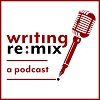In Episode 31, we talk to author and professor Ellen Wayland-Smith about her new book, The Angel in the Marketplace. We also talk about teaching students genre expectations and boundaries (and how to step beyond them) as well as how to incorporate voice and personal experience into academic writing.
Ellen Wayland-Smith is an associate professor of Writing at the University of Southern California. She is the author of Oneida: From Free Love Utopia to the Well Set Table (Picador, 2016) and of The Angel in the Marketplace: Jean Wade Rindlaub and the Selling of America (University of Chicago Press, March 2020). Her essays and reviews have appeared in Signature Reads, Catapult, The Millions, and Longreads.
People and Texts Mentioned in the Episode
Some links may be affiliate links, which at no additional cost to you help to fund The Writing Remix. As an Amazon Associate, I earn from qualifying purchases.
- The Angel in the Marketplace: Adwoman Jean Wade Rindlaub and the Selling of America by Ellen Wayland-Smith
- Oneida: From Free Love Utopia to the Well-Set Table by Ellen Wayland-Smith
- The Blithedale Romance by Nathaniel Hawthorne
- On the Road by Jack Kerouac
- “The Devil’s Bait” by Leslie Jamison (from The Empathy Exams)
- “Soliloquy of the Spanish Cloister” by Robert Browning
- Paterson by William Carlos Williams
- The California Poem by Eleni Sikelianos
- Langston Hughes
“That’s one thing that I found interesting in my research was seeing just how much roleplaying there really was [in the 1940s and 50s] and how almost conscious they were themselves that these were not in any way sort of biologically predetermined or predestined roles. They were very much a fiction that they were constructing.” @EllenWaylands
Tweet
“Exploring different genres and talking about academic writing as opposed to other kinds of non-fiction writing…has made me much more creative, I think, in my approach to [Writing 340] and has helped me expand the kinds of writing that I see as useful…and as something I want to introduce students to.” @EllenWaylands
Tweet
“There isn’t good writing and bad writing. There’s writing that meets its rhetorical aim and the genre expectations of the audience that you’re aiming it to. And there’s writing that doesn’t, or that does it less well.” @EllenWaylands
Tweet
“Your voice is part of your argument. Just because you have a voice doesn’t discredit your case. You can use your voice in order to weave a much more compelling and evidence-packed narrative. You can draw on different kinds of evidence. You can draw on the evidence of your body and your experience… That’s going to be actually a more compelling case than just doing this disembodied thing in which there’s no sort of identification between reader and writer.” @EllenWaylands
Tweet
This episode was recorded on October 12. Because we recorded via Zoom, there may be occasional audio hiccups. Our theme song is “4 am” by Makaih Beats. You can subscribe to the podcast on Apple Podcasts, Spotify, and Stitcher and follow us on Twitter @WritingRemixPod.

